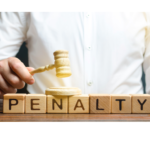NSW Law and Drink Spiking as a Crime

With the party season well underway, it is important to stay as safe as possible and enjoy yourself without ending up in legal trouble.
Under NSW law, drink spiking is a criminal offence that can attract harsh penalties.
Whether you are celebrating at home this festive season or spending time out and about, make sure you don’t start your new year facing criminal charges and a potential jail sentence.
Although there is a common belief that drink spiking usually involves drugs such as GHB, Rohypnol and Ketamine, according to NSW Police, alcohol itself is the most commonly used substance in drink spiking incidents.
Where drugs can often be tasted in a drink, or leave sediment in the glass, some types of alcohol such as vodka are difficult to detect by taste or sight when added to another alcoholic or flavoured drink.
If you add vodka to someone else’s drink, even if it is just as a joke, you could be charged with drink spiking.
What is drink spiking?
Drink spiking is an offence under Section 38A of the Crimes Act.
The law surrounding drink spiking as a criminal offence has changed in recent years. Where previously you had to have committed an offence such as assault or robbery against the person whose drink you spiked, now it is possible to be charged with drink spiking without having committed any further offence against the victim.
Tampering with food also comes under the offence of drink spiking.
To qualify as ‘spiking’, the prosecution needs to prove that you deliberately added an intoxicating substance, or a significantly larger quantity of an intoxicating substance than would have been expected, to food or drink that was then consumed by the victim.
There are a number of other factors that need to be present for a successful charge of drink spiking, and these include:
- There needs to be a reasonable belief that the victim of the drink spiking would not knowingly agree to consume the substance added, or to consume it in the quantities that were involved.
- There needs to be an intention of causing harm to the victim.
Drink spiking covers not only directly giving another person spiked food or drink, but also preparing it and making it available for their consumption without advising them that it contains an intoxicating substance.
What are the penalties for drink spiking?
Drink spiking under NSW law is a summary offence, which means that it will be dealt with in the local court in front of a magistrate.
If you are found guilty of drink spiking, you can be sentenced to a maximum of two years’ imprisonment and/or face a fine of up to $11,000.
Other penalties that you may face include community service, a suspended sentence or a good behaviour bond.
What are the defences for a charge of drink spiking?
There are a number of possible defences to a charge of drink spiking, including being able to demonstrate that the alleged victim was aware of the intoxicating substance and the amounts involved.
You may also be able to successfully defend yourself against charges of drink spiking in situations where it could be assumed that the alleged victim would be willing to consume the spiked food or drink if they had prior knowledge of what it contained.
If you are facing charges of drink spiking, it is important that you find an experienced criminal lawyer to help you.
Your lawyer will be able to advise you on the best defence for your individual circumstances, and help you get the best possible outcome from your case.
What if my drink has been spiked and I commit an offence?
If your drink has been spiked and you then commit an offence such as drink driving under the mistaken belief that you are just tired or ‘woozy’, this may be a defence to the charge.
The defence is called ‘honest and reasonable mistake’.
However, you would need to show that you truly believed that you were affected by something other than alcohol or drugs, and your belief must be reasonable in all of the circumstances.






